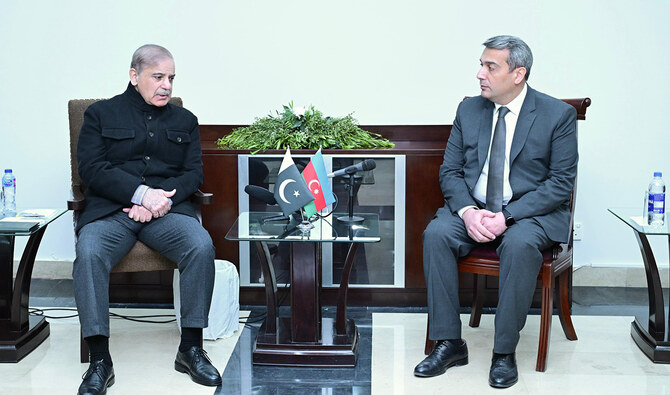PESHAWAR: It’s been months since Hussain Ali has seen his wife and two children.
A resident of the Nagar district in Pakistan’s Gilgit Baltistan region, Ali was one of 21 pilgrims who returned from Iran via the Taftan border on March 1 and was immediately placed under quarantine as part of anti-virus measures to limit the spread of Covid-19 or coronavirus in the country.
“Lack of awareness and improper facilities at the Taftan quarantine center resulted in spreading the virus among pilgrims returning from Iran,” Ali, 32, told Arab News via phone from the isolation facility in Nagar, one of the worst-affected districts in the Gilgit Baltistan (GB) region.
He expressed disappointment at the treatment meted out to pilgrims at the quarantine center along the Pakistani side of the border in Taftan, adding that the facilities in Nagar were far better than those available there.
The scenic region of GB is known for its picturesque landscapes and was a tourism hotspot, with thousands thronging the area, up until the outbreak.
With 45 deaths and nearly 3,000 people testing positive for the disease across Pakistan, it wasn’t long before the pandemic began spreading to GB, too.
“Three people have died in the area including a doctor, Dr. Osama Riaz, who lost his life while screening pilgrims from Iran at one of the centers. So far, 945 people have been tested, out of which 206 are positive,” Faizullah Firaq, spokesman for the GB government told Arab News, adding that Nagar and Baltistan divisions “were the worst-affected areas” in the region which comprises ten districts in all.
The problem doesn’t end there.
With a total population of 1.5 million, Firaq said GB has only one laboratory with a maximum capacity to test 20 to 30 people every day.
Reiterating the “dire need to increase testing facilities,” Firaq said authorities in the area – with the support of the National Disaster Management Authority (NDMA) – are in the process of setting up two more laboratories in Skardu and Gilgit soon.
”The primary reason for the spread of coronavirus in the area is the return of pilgrims from Iran,” he said, adding that some of the preventive measures include imposing a complete lockdown and “moving infected people to quarantine centers.”
“We have converted 15 hotels into quarantine centers to provide best possible facilities to those infected by coronavirus,” Captain Retired Muhamad Shah Rukh Cheema, Nagar’s Deputy Commissioner told Arab News.
He added that the patients are being taken care of in “the best manner possible” with separate rooms for each and access to Internet and reading facilities.
Residents, however, are not convinced with some saying that the measures in place are too little, too late.
“They [authorities] separated them [the pilgrims] after they mingled around with their families and neighborhood,” Zulfiqar Ali, another resident of Nagar told Arab News, adding that he feared the number of positive cases was far more than those reported.
He believes that for more effective security arrangements, it would help for paramilitary forces to patrol the area, to ensure residents adhere to the lockdown.
Ali agrees. As he anxiously waits at the quarantine facility, hoping for a breakthrough, he’s worried about the future of the district.
“People were living a happy life in Nagar before, but following the outbreak, everyone is worried,” he said, adding that he’s desperate for life to resume normalcy so that he can be with his family again.
“I just want to kiss my children. This experience has made me so tired.”
















